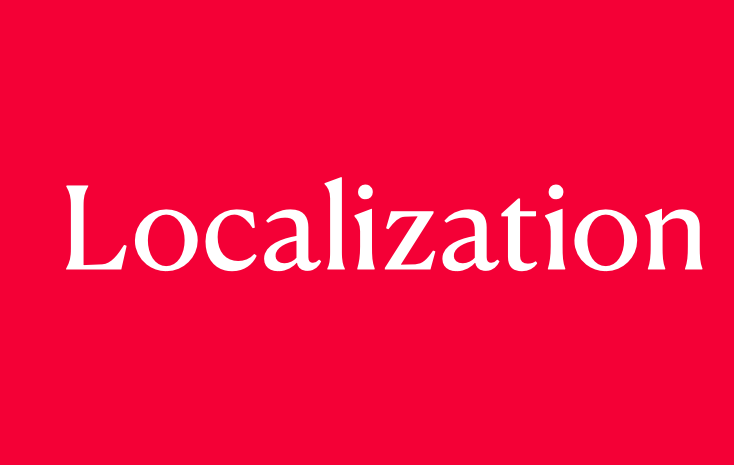The key to unlocking global success for any industry is to understand your target audience. The major part involves understanding the target audience’s pain points, and their needs and crafting content according to their culture. Sounds easy, right? However, it is not as easy as it first appears.
It requires a whole process of website localization. You must be wondering why we localize the website. Because websites are the first point of contact with your potential customers. According to a CSA survey, 40% of people will never buy from a website in another language.
Now you must have understood that localizing website content is essential and that website localization matters if you plan to take your business toward global success. In this blog post, we will tell you about the art of localizing website content and the benefits of effective website localization.
Let’s take a closer look at everything you need to know to get started with website localization.

What is website content localization?
On a simple note, we can say that website content localization is the process of optimizing the website content according to the language and culture of the target audience and providing them with the most beneficial and relevant user experience. Website content localization is not the same as translation. Because localization is a process where even the trivial nuances of the target audience are taken into consideration.
The ultimate goal is to create a seamless and engaging user experience that feels as though the website was created for the targeted audience. Now, you must be well aware that website localization goes beyond mere translation, considering different factors like local dialects, date format, currencies, website content, and layout. To ensure that the website resonates with internet users effectively and communicates the intended message.
Benefits of effective website localization
When a website localization strategy is implemented effectively, it garners success for your business. Here are some of the benefits of effective website localization.
1. Increased Revenue
When a website gets localized for a target audience, your business taps into new markets and reaches new customers who were not able to engage with your brand otherwise. By providing a website accessible and relevant in their native language, you can increase sales and revenue for your business. And it can also help you establish a strong foothold in the target market.
2. Increase website traffic and improve SEO
When you localize your website, one thing you must do is optimize it for local search engines and keywords. It improves the search engine ranking of your website and drives more organic traffic to it. Using the right and relevant keywords and phrases in the target language will increase the visibility of your website amongst local customers who are searching for products or services online.
3. Increase in brand reputation
Website localization helps your business establish a stronger presence in the local market, which ultimately improves the reputation and credibility of your business amongst local customers. When you meet the needs and preferences of the target audience, it helps build trust and loyalty, which leads to a long-term relationship with ultimate success and growth.
Key steps involved in localizing website content
Once you understand the importance of website localization, the next important step is how to localize website content. And what are the key steps involved in localizing website content? We have listed here for you the key steps involved in localizing website content.
1. Market Research
No business can leap forward without thorough market research. Always identify your target market and the target language spoken. Also, it’s best to analyze cultural nuances, preferences, and local rules and regulations that might impact the website’s content. You should not leap into any investment opportunities without analyzing the market.
2. Local Keyword Research
Before localizing your website content, it is best to do some research on local keywords. This will help you stand out in Google Analytics and search engine pages. Local keyword research is considered a good website localization strategy and can assist you in understanding which phrases or words people in target markets use to search for products or services. Multilingual keyword research is a good marketing strategy and can help you learn how your target audience perceives your product or services.
3. Develop an SEO strategy
The success of your localized website depends on a perfect SEO strategy. Having a perfect SEO strategy means you need to optimize meta tags (title tags, meta descriptions) with relevant local keywords. And to ensure that the website content is valuable, engaging, and relevant to the local audience. Many countries do not use Google as their primary search engine. Some countries rely on Yahoo, Bing, etc. So, it is essential to optimize your website for all the search engines that your target audience prefers.
4. Optimizing website speed
The internet connection speed is not similar in some countries, especially in developing nations. You need to ensure that your localized website easily accommodates these differences. Always keep in mind that you are not hosting a large website where the target market has poor internet connections and slow Wi-Fi rates. Ensure that your website is easily accessible in every country.
5. Test your website
Once you localize your website, it is essential to test it so that you can reap the benefits of the localization. Website testing is essential before launching in a new target market. Check the website for any grammatical errors, images used, phrases and words, and loading times. This helps you understand how the website will work in the target market.
Localization of your website is an ongoing process that requires regular updates and improvements for an enhanced user experience. With years of experience in website localization, our team of professional website localization experts have got you covered. Providing accurate and authentic services to our customers is what we do best.
Reach us at info@naargmedia.com to learn more about our professional translation and localization services.

